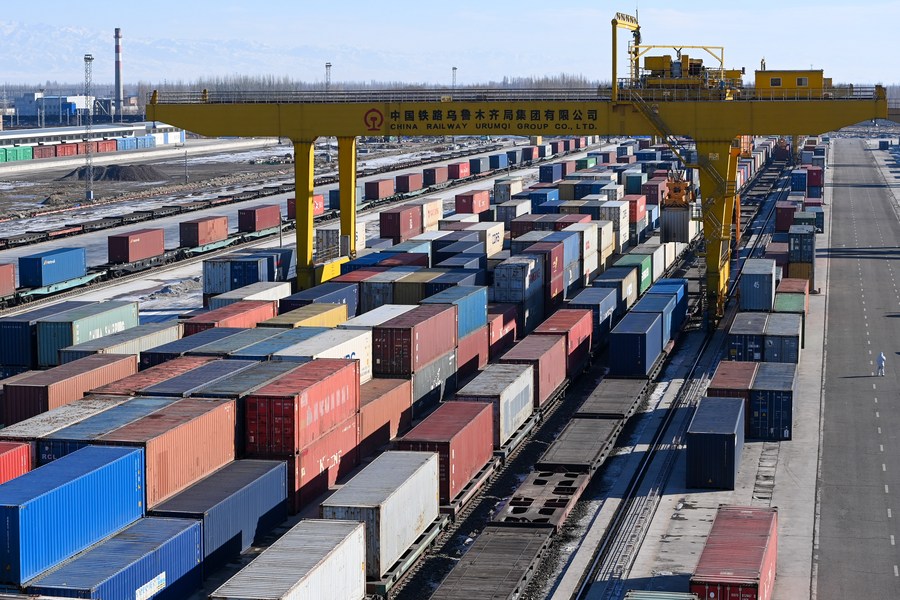Goal for Central Asia trade on track
By ZHANG YUNBI | China Daily Global | Updated: 2022-09-21 07:37

Target to lift value to $70b 'completely achievable', Chinese diplomat says
A goal to ramp up trade between China and the five Central Asian countries to a combined $70 billion a year is "completely achievable", a senior Chinese diplomat said on Tuesday.
"Achieving the goal also serves the common wishes of China and five Central Asian nations," Liu Jiangping, deputy director-general of the Chinese Foreign Ministry's Department of European-Central Asian Affairs, told a news briefing in Beijing following Chinese President Xi Jinping's trip to the region last week.
Trade between China and the Central Asian nations stood at $38.6 billion in 2020, data from the Ministry of Commerce shows.
Despite the pandemic-induced slump in global trade, China's trade with its Central Asian neighbors has increased, said Liu, referring to growth rates in the double digits with some of these countries.
Collaboration on the economy and trade was high on the agenda when President Xi held separate talks with leaders of the Central Asian countries during the trip, she added.
Xi chose the region for his first trip abroad in more than two years, starting in Kazakhstan before heading to Samarkand, Uzbekistan, for the 22nd summit of the Shanghai Cooperation Organization, or SCO, which ended on Friday.
Liu said the leaders' meetings highlighted the need to further tap the potential of collaboration on economy and trade, boost the scale and scope of trade cooperation and further improve trade structures.
"The future improvement of both quality and scale of trade will inject strong dynamism to the common development of China and the five countries," she said.
Challenges ahead
Sohail Khan, deputy secretary-general of the SCO, said the summit was held as the world faces a series of complicated challenges and a slew of regional conflicts and crises.
Also, technology gaps and digital divides are widening across the globe, financial markets are jittery, and some nations are raising barriers to the transfer of technologies as protectionism rises, he said.
The Samarkand Declaration issued by the meeting of the SCO Council of Heads of State "manifests the shared position among the member states and charts a course for the path of the grouping's future development", Khan said.
In particular, the deputy secretary-general highlighted the four joint statements passed by the leaders on keeping supply chains and productions chain afloat, while addressing food security, energy security and climate change.
Interactions among the SCO member states are frank, sincere and open, with all members subscribing to the principles of the organization, Khan said.
He stressed the need to further develop interconnectivity and economic corridors among the member states and champion the region's peace and stability.
In the briefing, Liu said: "The progress made by the SCO at the summit about its expanding membership shows that it is not a closed or exclusive small circle but a big family.
"The expanding membership shows that an increasing number of countries recognize the Shanghai Spirit (of the organization), and the actions of hegemony and bullying are unpopular."
Parakhat Durdyev, Turkmenistan's ambassador to China, underlined the need for countries to further join hands in championing global security and stability.
He said his country strongly opposes confrontation and unfair competition, and supported efforts to settle conflicts.
























